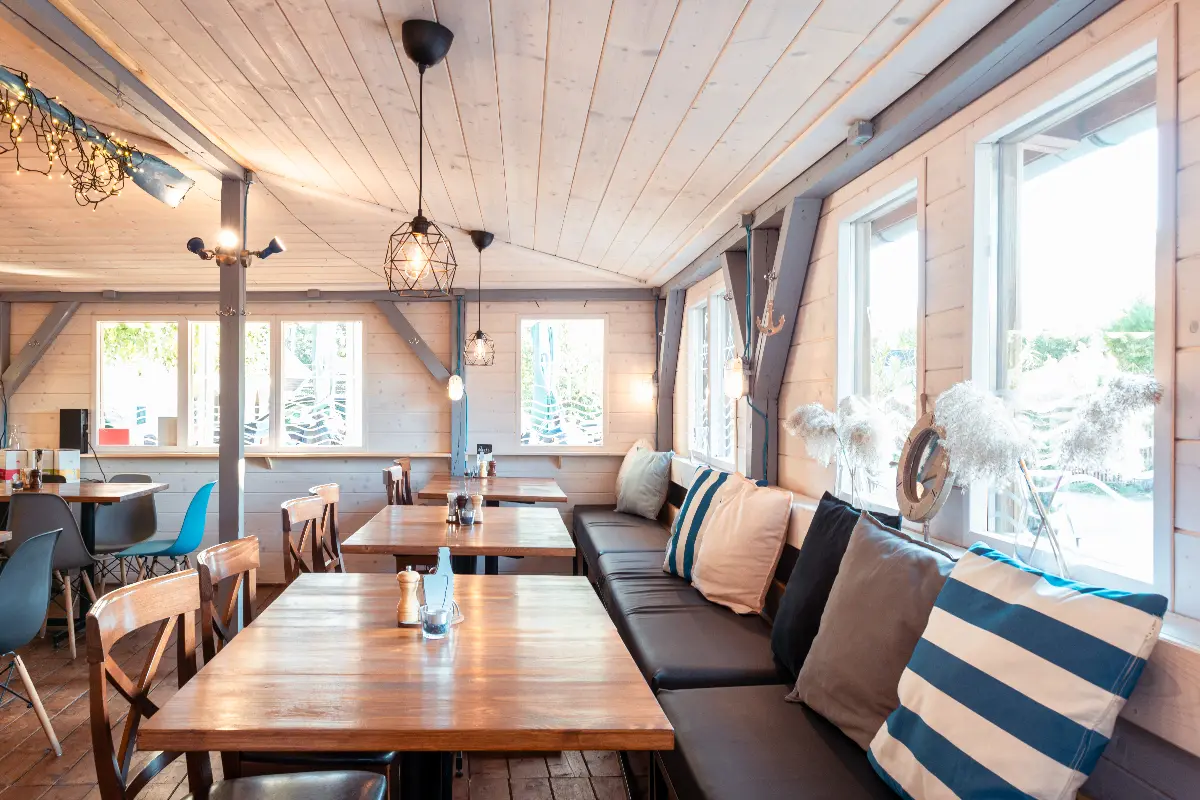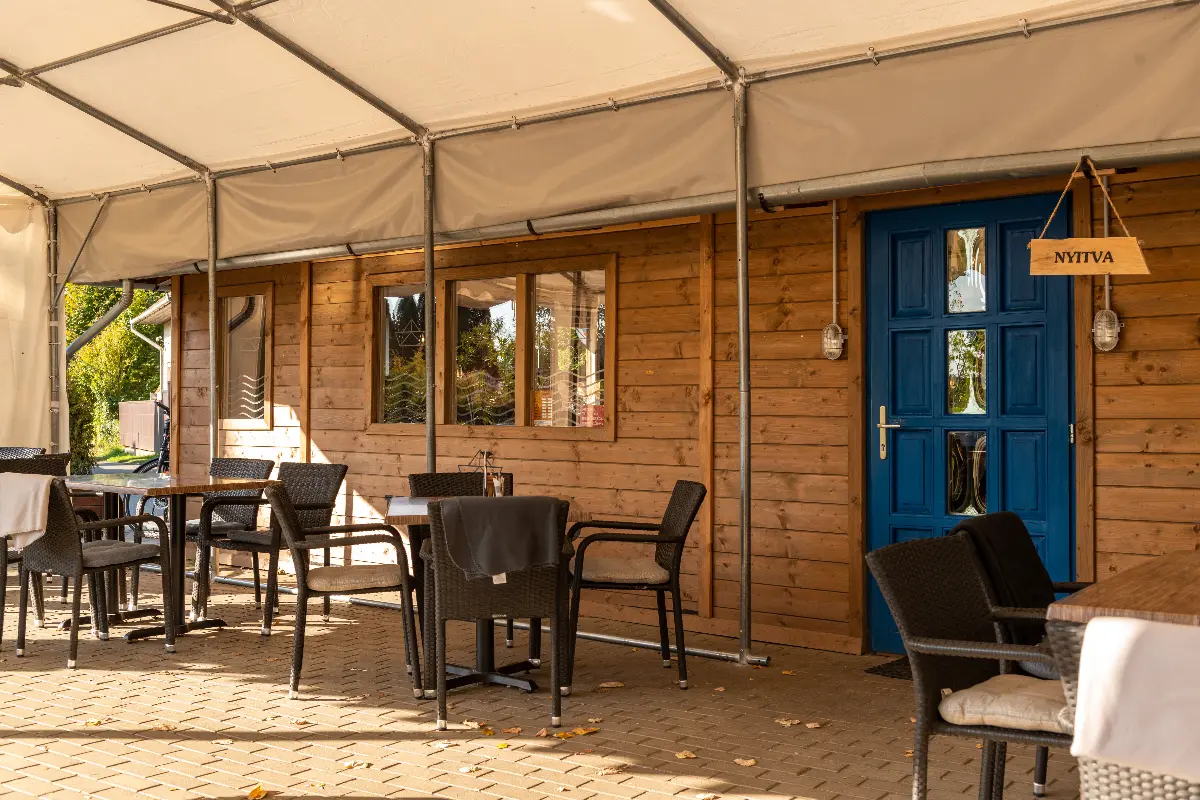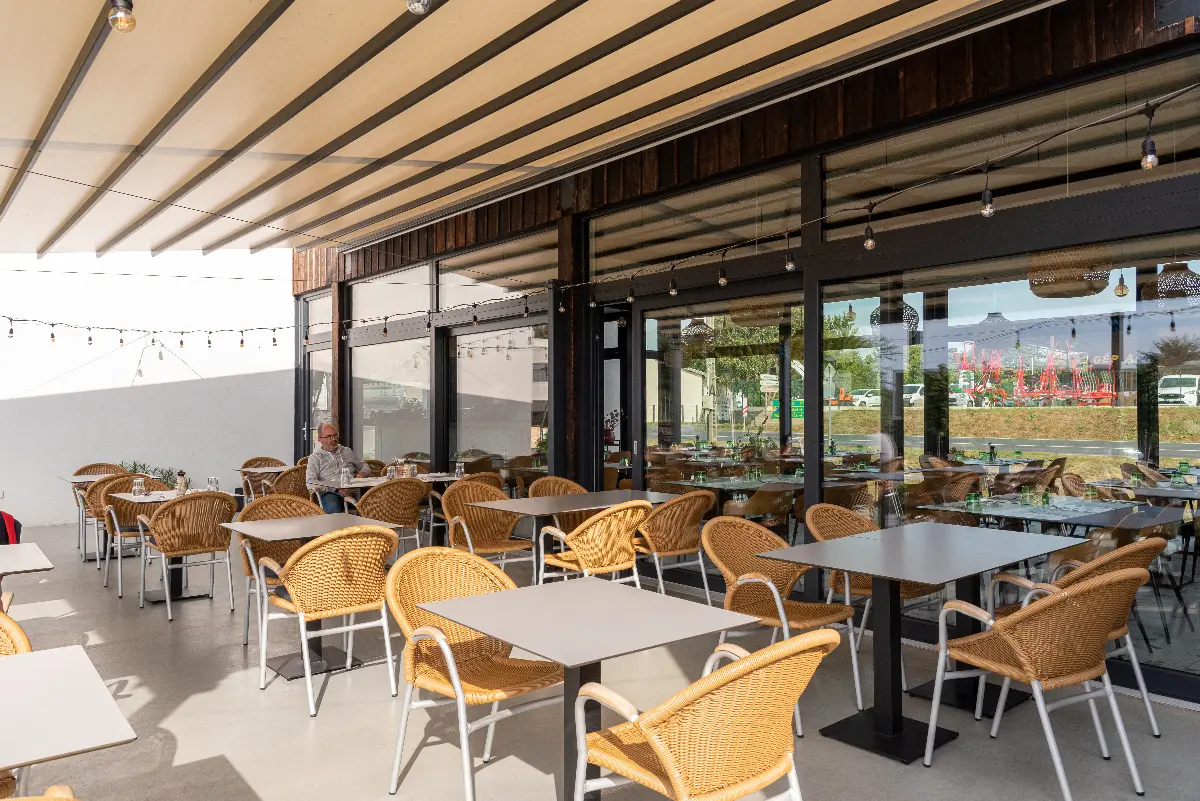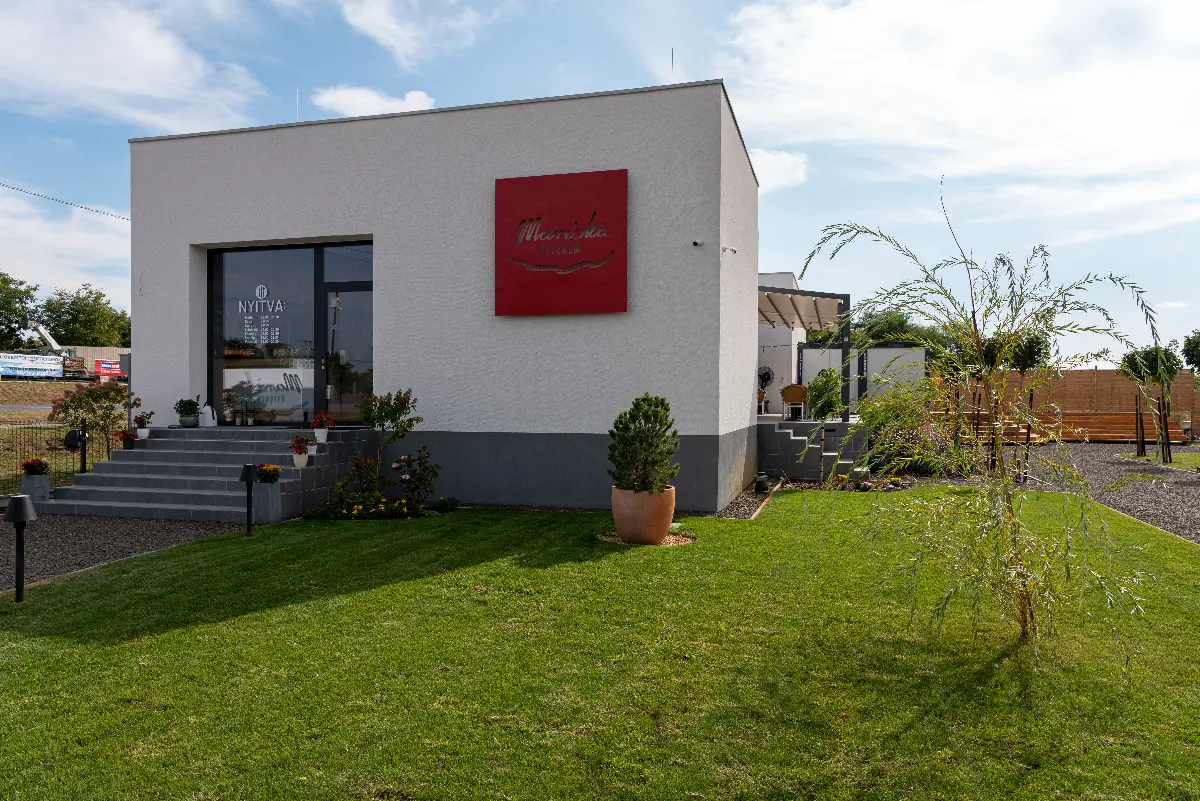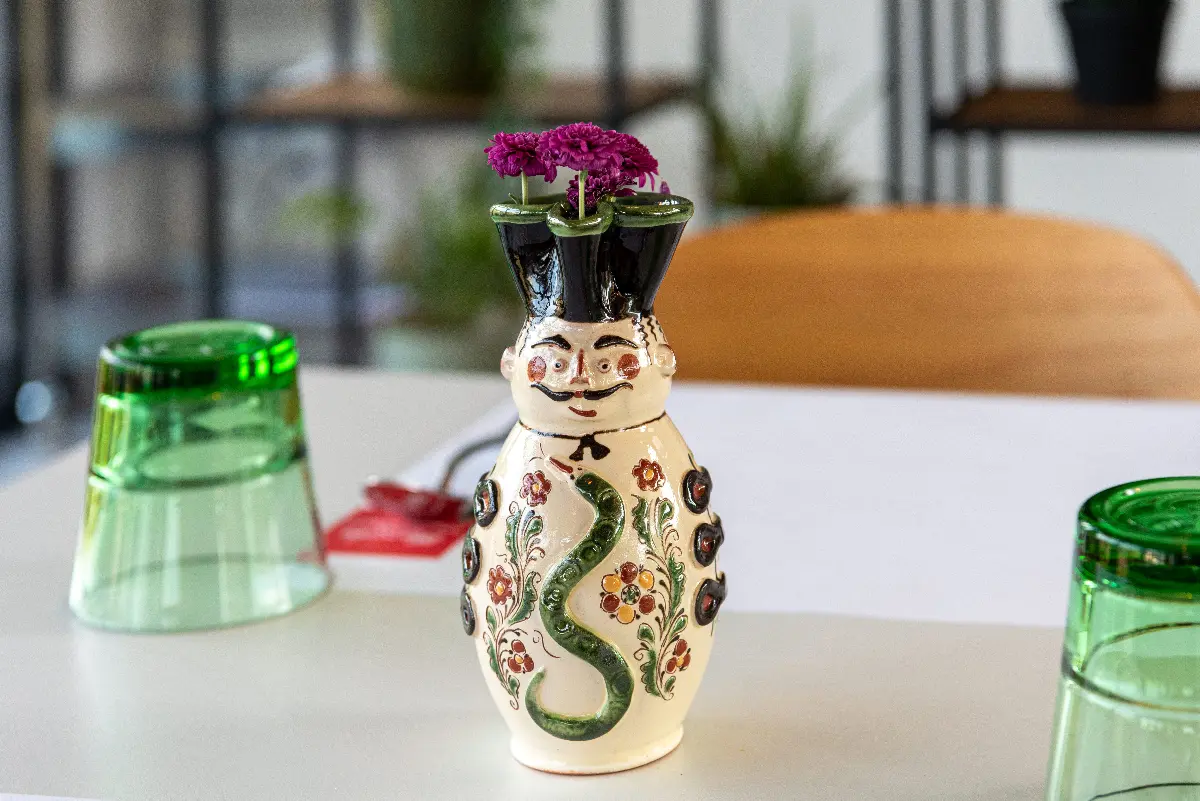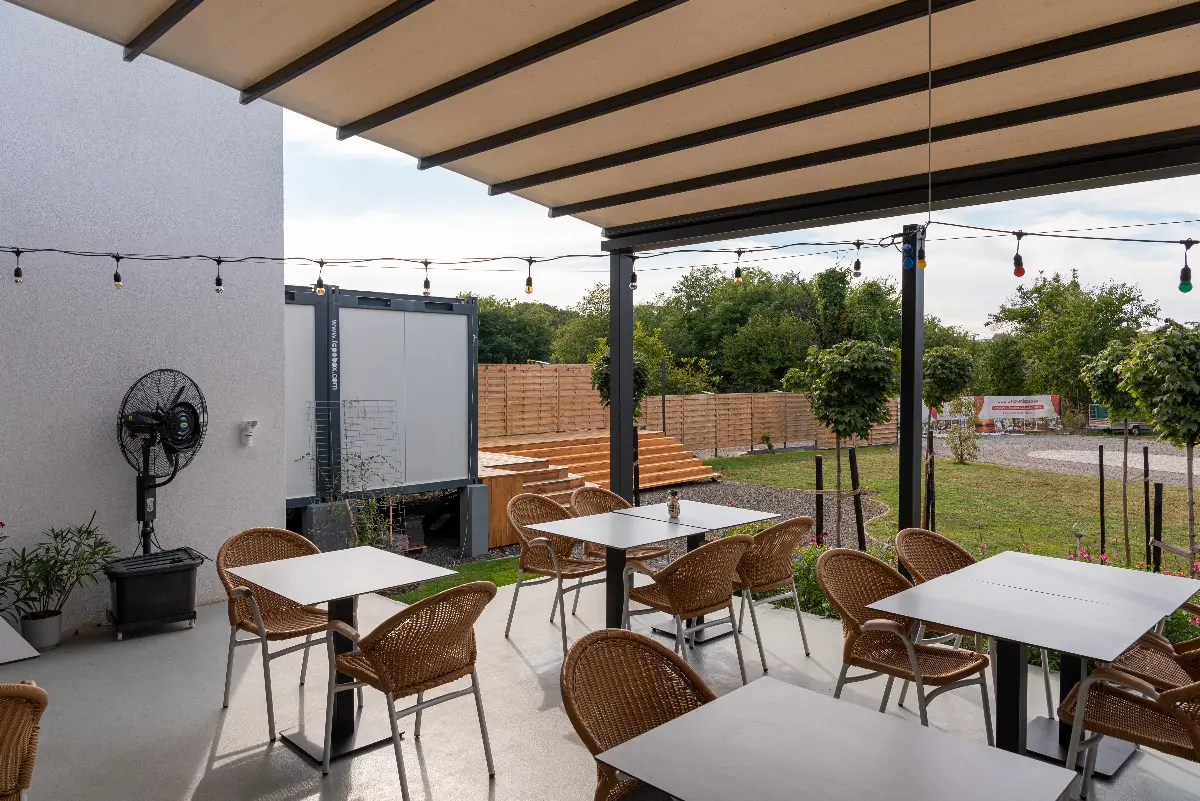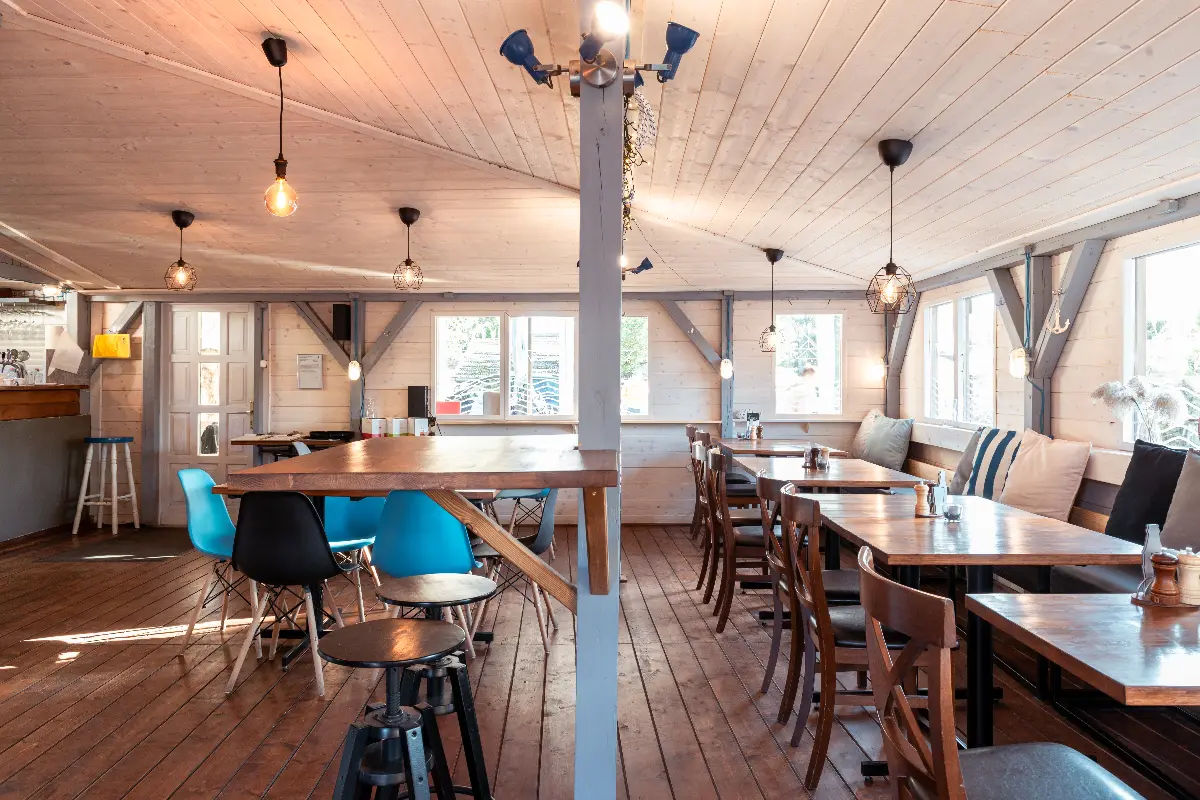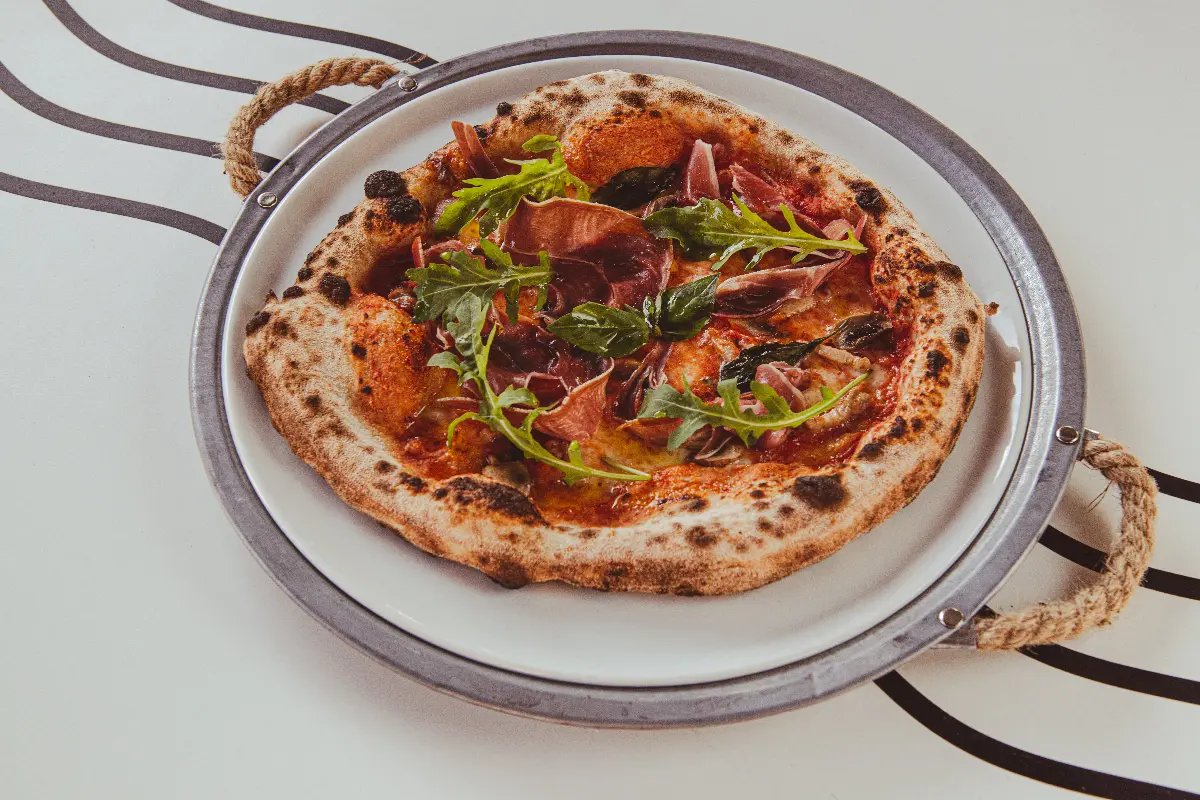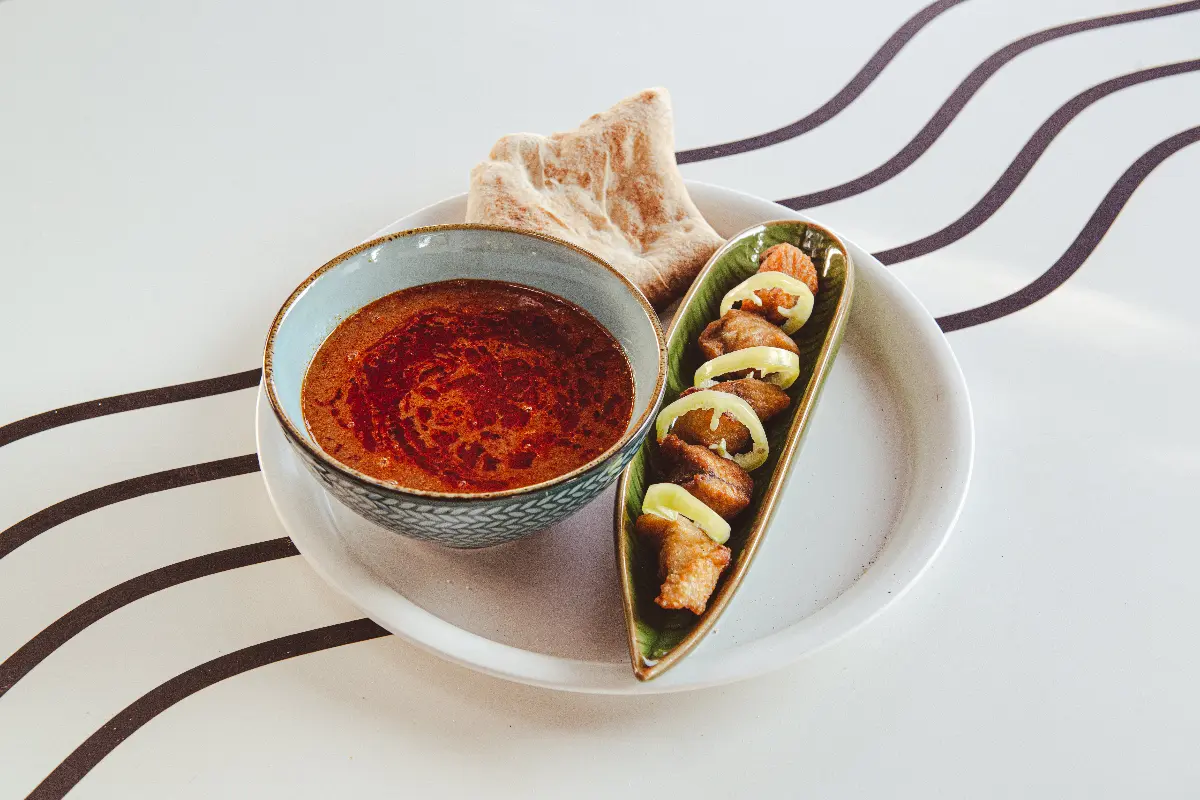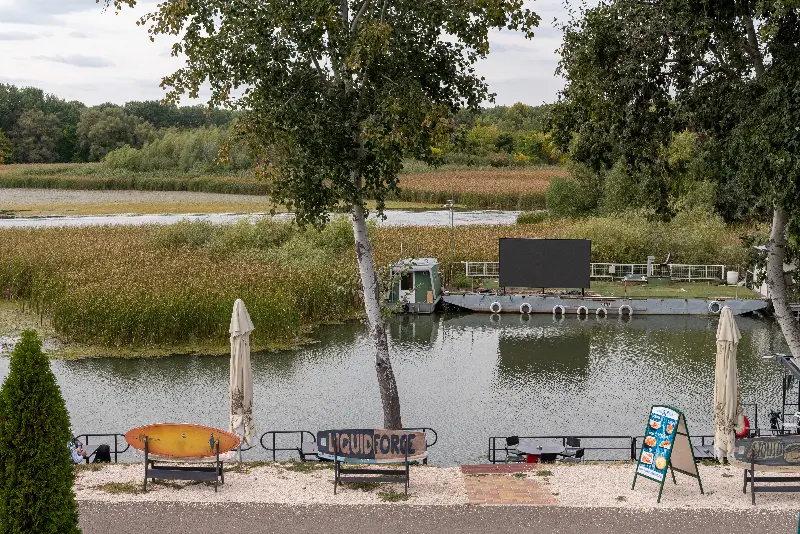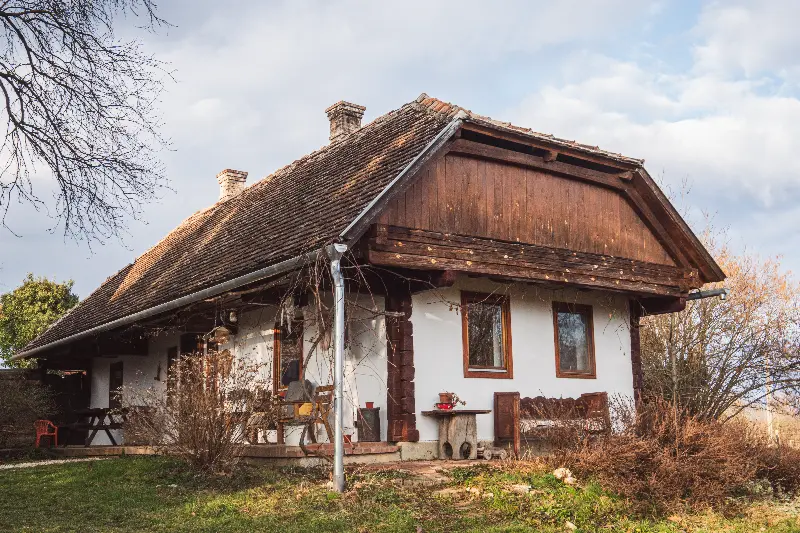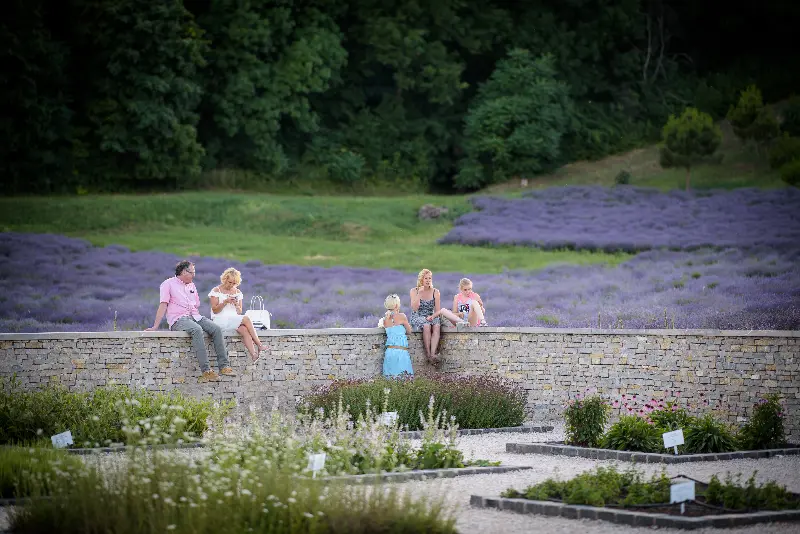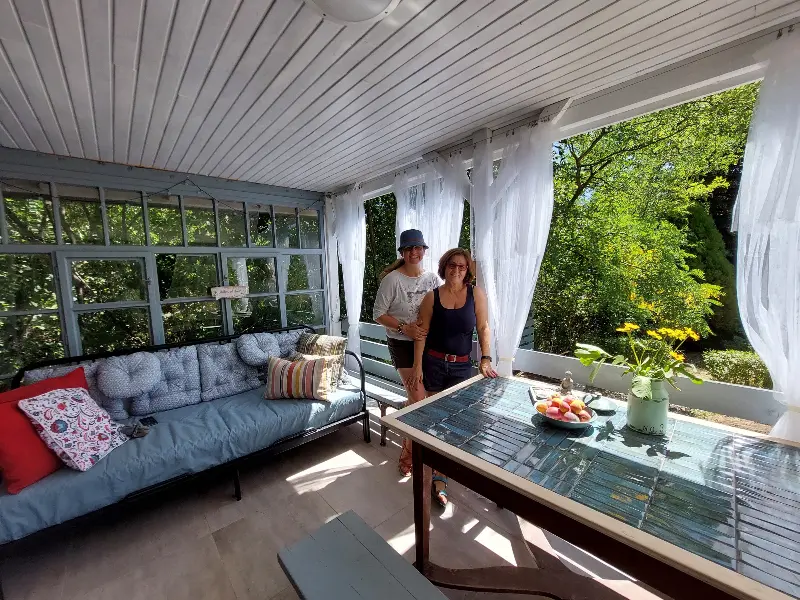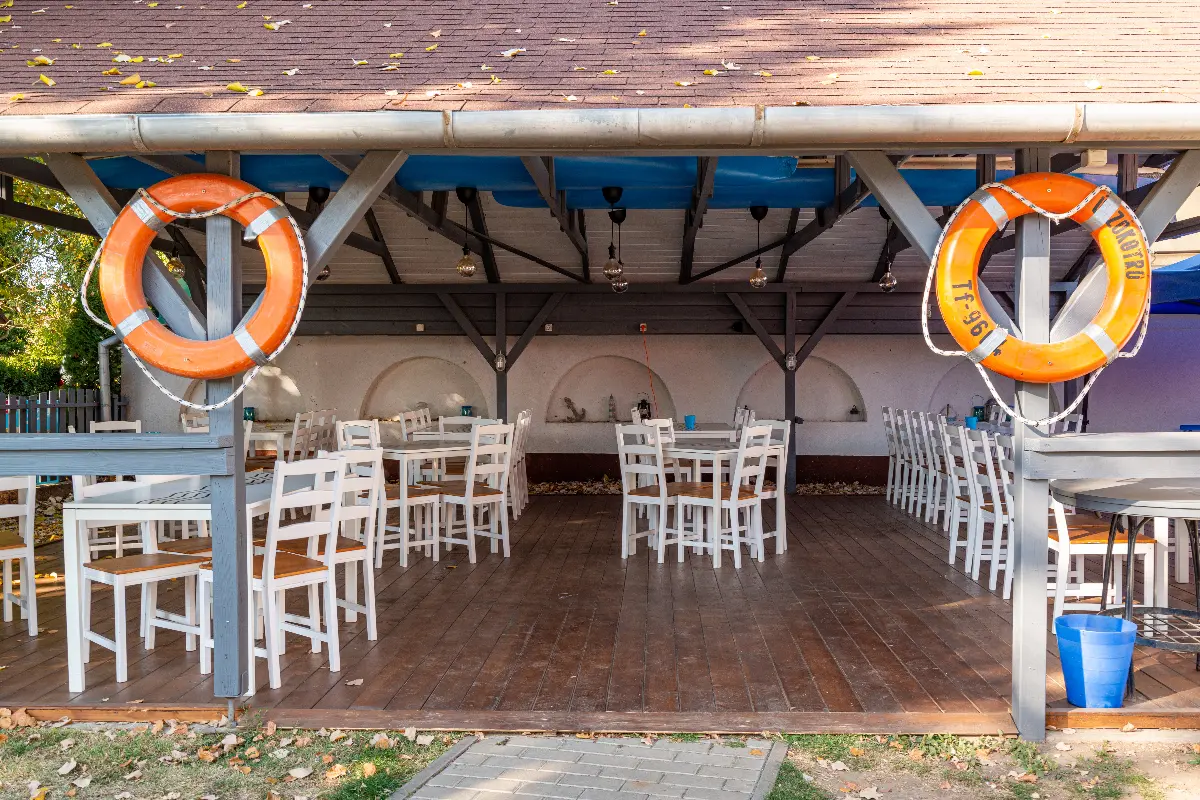
Helyszín címkék:
Gastro tour around Lake Tisza “Mariska Étterem” (Mariska Restaurant), “Tutajos Étterem” (Raftsman Restaurant), “Horgonyzó Kisvendéglő” (Anchor Restaurant)
Jászberényi Attila
“Mariska Étterem” (Mariska Restaurant)
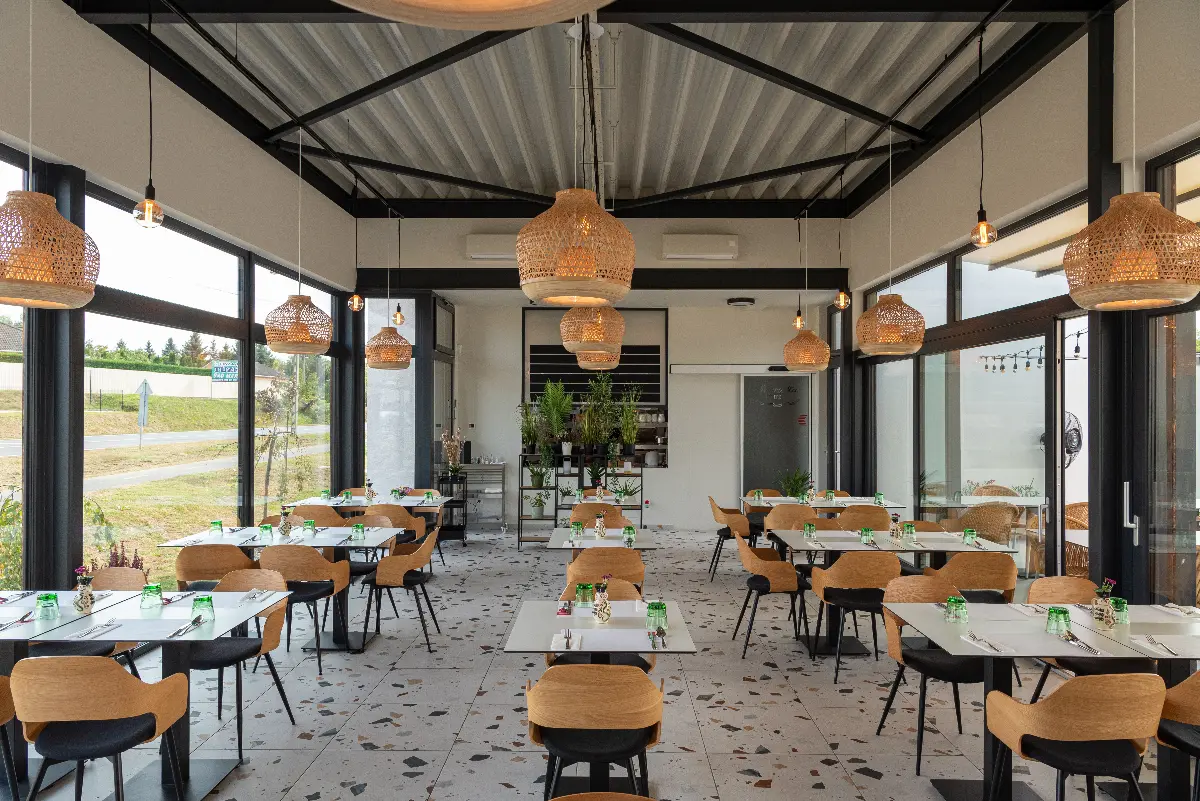
Heading from Poroszló to Tiszafüred, you simply have to stop at “Mariska Étterem” (Mariska Restaurant) next to the “Kerékpáros Centrum” (Cycling Centre). The terrace is huge and the space is dominated by understated and clean lines, a design that would be at home in any downtown Budapest restaurant. The menu pays particular attention to the free-range offerings of the area's livestock farmers, the pigs called by name and the hand-fed calves. The show kitchen is very busy, but the food is prepared with a gentle, low-heat method. The lamb sour soup is a dish not to be missed, the coq au vin (Rooster in red wine) is a worthy continuation, and the poppy seed noodles with custard and wild berry jelly are the perfect complement. A separate, extended sentence in the one-minute long story of the menu is the fish soup, which does not follow the common Tisza (Szeged) version, but the traditional method of the kettle cooked on the waterfront, so it is more reminiscent of the Danube (Baja) version, spiced with southern paprika and last year's old onions. Most cycling tours around Lake Tisza start or end here, in Tiszafüred, but there is another bay to the north: the Valki Basin. It is less known, but rougher and wilder. Here, at the upper end, in Tiszabábolna, you will find a great place with checkered tablecloths.
“Tutajos Vendéglő” (Raftsman Restaurant)
A wooden log farmhouse, wooden furniture, open every day, in all seasons in a hidden corner of the Lake Tisza. The atmosphere is not that of a tavern, more like a small, solid restaurant in Óbuda, with village charm, attention to detail and great cuisine, without pomposity. The menu includes fish soup of all varieties, but the oxtail soup with sour cream is also noteworthy. The fried skin-on zander fillet is served with king prawns, kohlrabi cream and crunchy vegetables, while the bacon catfish slices are served with bulgur risotto. The spare rib is confit, the salsa contains mustard and cucumber, the cabbage is Bavarian, the mixed vegetable stew is Gypsy, the Serbian “livanszki” is with a penny bun, a multicultural parade in this small village in the Great Hungarian Plain. But most importantly, you can finally eat a good egg noodle in this neighbourhood.
“Horgonyzó Kisvendéglő” (Anchor Restaurant)
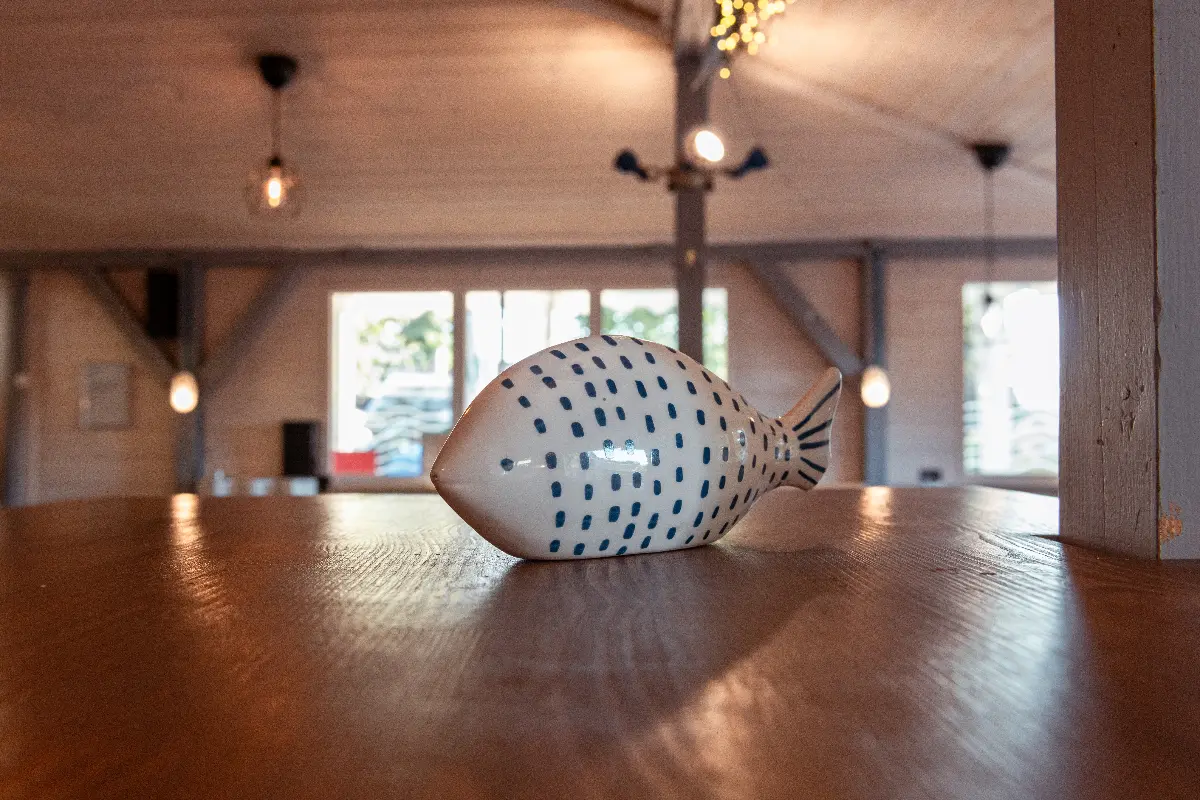
Lake Tisza (formerly known as “Kiskörei Víztároló” [Kisköre Reservoir]) as an artificial lake actually begins in Tiszalök, where the water is dammed at the beautiful socialist realist industrial monument hydroelectric power station. The place is also a retro resort village and a new pilgrimage site for “gastronomes” since the opening of the “Horgonyzó Kisvendéglő” (Anchor Restaurant).
“We are not afraid to be a small restaurant,"
says Péter Pataky, the star chef who founded the kitchens of “Ikon” (Icon) in Debrecen and Meatology in Budapest, and who is the patron, helper, or quasi “guardian” of the establishment, or as he puts it: “I am a resident of Tiszalök, I help with whatever I can, I am the Hungarian voice of the “Horgonyzó” (Anchor)." In addition to the creative solutions, it is a true rural, simple and honest unit, with local cheeses and meats, bacon and crackling from the chef-managed sous vide factory. The heart of the place is the wood-fired oven: they make everything they can in it. Ranging from soups (oven-baked celery cream soup with marinated green apples) to Dada cottage cheese pasta with blue cheese, penny bun and truffle butter sauce, deer-neck with sweet potatoes with gravy and noodles, to sourdough pizzas. And the desserts are the ingenuity of the owners, (Andrea and Tamás Kecskés): mugs of jam and walnut pastry and poppy seed dough. "Nowadays, there is nothing wrong with fish soup and cottage cheese pasta if the ingredients are good. I would now also like to make a simple langosh stand, for example, from sourdough that has been left to rise for three days,” concludes Péter, summing up the essence of modern gastronomy and the credo of rural hospitality.
